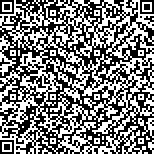|
|
|
| |
|
|
| 本文已被:浏览 921次 下载 0次 |

码上扫一扫! |
|
|
| 一株嗜碱兼性好氧反硝化菌Marinobacter sp.B3的分离鉴定及脱氮性能研究 |
|
滕峪1,2, 汪鲁3, 王占英1,4, 崔正国1, 曲克明1, 公伟曼1,2, 刘书凯1,5, 崔鸿武1
|
|
1.海水养殖生物育种与可持续产出全国重点实验室 中国水产科学研究院黄海水产研究所 山东青岛 266071;2.大连海洋大学水产与生命学院 辽宁大连 116000;3.崂山实验室 山东青岛 266237;4.上海海洋大学水产与生命学院 上海 201306;5.中国海洋大学化学化工学院 山东青岛 266100
|
|
| 摘要: |
| 为获得反硝化脱氮效率较好的菌株,实验从海水螺旋藻培养体系中分离获得一株嗜碱兼性好氧反硝化菌, 通过观察细菌形态以及16S rRNA基因序列的同源性分析, 鉴定该菌株为海杆菌属, 命名为Marinobacter sp. B3。为明确该海杆菌的反硝化性能及氮转化途径, 研究开展了溶解氧(DO), 碳氮摩尔比(C/N), pH和温度等不同单因素对反硝化性能影响实验和氮平衡实验。单因素影响实验结果表明, 当硝酸钾(KNO3)作为唯一氮源, NO3--N的初始浓度为100 mg/L, 盐度32, 振荡速度为150 r/min (初始DO质量浓度是5.6 mg/L), C/N=10, pH=8.0±0.2, 温度为35 °C时, 可获得最大脱氮效果。氮平衡实验结果得出, 在好氧环境下, 有20.11%的NO3--N转化为胞内氮, 5.58 mg/L的NO3--N转化为其他形态(NO2--N、NO4+-N和有机氮), 74.72%转化为N2释放; 厌氧环境下, 有26.65%的NO3--N转化为胞内氮, 72.86%的NO3--N转化为气态产物释放。最终实验结果表明, Marinobactersp. B3在好氧和厌氧条件下, 48 h对NO3--N的去除率分别为99.89%和93.80%, 具有较好的反硝化脱氮能力, 且在好氧条件下NO3--N去除效率更高, 在海水工厂化循环水养殖尾水处理方面具有良好的应用前景。 |
| 关键词: 反硝化作用 循环水养殖 生物脱氮 养殖尾水处理 |
| DOI:10.11693/hyhz20230900191 |
| 分类号:X172 |
| 基金项目:国家自然科学基金青年基金,32202998号;山东省自然科学基金青年项目,ZR2022QC111号;中国水产科学研究院基本科研业务费资助,2023TD53号。 |
|
| Isolation and identification of an alkalophilic facultative aerobic denitrification strain Marinobacter sp.B3 and its denitrification performance |
|
TENG Yu1,2, WANG Lu3, WANG Zhan-Ying1,4, CUI Zheng-Guo1, QU Ke-Ming1, GONG Wei-Man1,2, LIU Shu-Kai1,5, CUI Hong-Wu1
|
|
1.State Key Laboratory of Mariculture Biobreeding and Sustainable Goods, Yellow Sea Fisheries Research Institute, Chinese Academy of Fishery Sciences, Qingdao, 266071, China;2.College of Fisheries and Life Science, Dalian Ocean University, Dalian 116000, China;3.Laoshan Laboratory, Qingdao 266237, China;4.College of Fisheries and Life Science, Shanghai Ocean University, Shanghai 201306, China;5.School of Chemistry and Chemical Engineering, Ocean University of China, Qingdao 266100, Chin
|
| Abstract: |
| To obtain a strain with better denitrification and nitrogen removal efficiency, an alkaliphilic denitrifying bacterial strain was isolated from a seawater Spirulina culture system. Through 16S rRNA identification and BLAST homology analysis, the genus was identified as Marinobacter, and named Marinobacter sp. B3. To clarify the denitrification performance and nitrogen conversion pathway of the sea bacillus, the effects of different single factors (dissolved oxygen (DO), carbon/nitrogen ratio (C/N), pH, and temperature) on the denitrification performance and nitrogen balance were investigated in experiment. Results of single-factor experiments showed that when potassium nitrate (KNO3) was used as the only nitrogen source, the initial concentration of NO3--N was 100 mg/L, the salinity was 32, the oscillation speed was 150 r/min (the initial DO mass concentration was 5.6 mg/L), C/N=10, pH=8, and the temperature was 35 °C, the maximum nitrogen removal effect could be obtained. In addition, the results of nitrogen balance experiments showed that under aerobic environment, 20.11% of NO3--N was converted to intracellular nitrogen, 5.58 mg/L NO3--N was converted to other denitrification products (NO2--N, NO4+-N and organic nitrogen), and 74.72% was converted to N2released. Under anaerobic conditions, 26.65% of NO3--N was converted to intracellular nitrogen, and 72.86% of NO3--N was converted to gaseous products for release. The final experimental results showed that under aerobic and anaerobic conditions, Marinobacter sp. B3 had a removal efficiency of 99.89% and 93.80% for NO3--N in 48 hours, respectively, and the NO3--N removal efficiency was higher under aerobic conditions, showing a good application prospect in the treatment of aquaculture tail water in seawater factory recirculating system. |
| Key words: denitrification recirculating aquaculture biological denitrification aquaculture tail water treatment |
|
|
|
|
|
|
